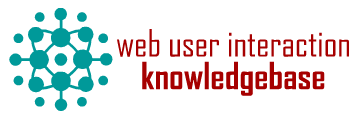Модули
The Media module provides an extensible framework for managing files and multimedia assets, regardless of whether they are hosted on your own site or a 3rd party site - it is commonly referred to a
This is a simple filter module which wraps input by breaking long words and preventing them from damaging your layout.
Have you ever wanted more than two regions to put blocks in? Me too - thats why I wrote Flexiblock. Flexiblock has an admin page where you can allocate each enabled block to one of nine regions. Your themes can then invoke the blocks for each region: see the documentation for how - brief instructions are also included in the code.
Theme Editor offers an interface for for the editing of theme files within a Drupal site. Some of the features include:
- Editing of CSS, .info, and Template Files
- Simple back up and restore functions
- Adding and deleting of files
- Fine tuned permissions for different themes and file types
- And More....
**There is now a semi-working D7 version committed to the Repo. While it's not ready for a dev version yet it can be downloaded via GIT and tested. Any testing or help on development would be much appreciated.**
A module that allows you to attach weblinks to other modules.
Requires the weblink module
Overview
Allows you to make documents for just about anything, pdf them, deliver or print them. It uses a technology called Latex.
This module displays customizable index pages for each node type, with alphabetical, taxonomy, and user filters.
This module provides your website with currency conversion, currency information & metadata, and amount/price display functionality.
Instead of showing a standard "404 Page not found", this module performs a search on the keywords in the URL, e.g. if a user goes to http://example.com/does/not/exist, this module will do a search for "does not exist" and shows the result of the search instead of the 404 page. This should help retain visitors coming in from old URLs linked from other sites or from search indices.
It also includes search engine keywords detections as well as regular expression based term filtering from the URL.
The adminblock module enables admins to display a block with the comments approval queue and the node moderation queue. Each item gets their own edit link and delete link for quick administration.
CronPlus adds more "cron" hooks to Drupal beyond the basic one, with each of the new hooks being called at or near specified time intervals (hourly, daily, weekly, monthly, and yearly).
This wants to become a feature rich, advanced gallery. It uses nodes for everything, but depends heavily on image and views module.
This module allows visitors to the site to volunteer for an event and provides the site administrator with comprehensive Volunteer management tools to keep track of Volunteers, tasks and communication.
A module that lists every user on the site with a certain profile_field filled in, similar to a site directory of users with that information listed (i.e., users with an AOL Instant Messenger or XF
The roledelay module allows you to set a user role that new members are granted after a certain time period from registration.
Module maintainer @podarok
The Location module allows real-world geographic locations to be associated with Drupal nodes, including people, places, and other content. The Location module allows admins to collect addresses, geocode them (translate addresses to lattitude/longitude), and associate locations with Drupal nodes and users. Location data is automatically used to generate GeoRSS within your existing RSS feeds.
We need help from developers with #1931088: [META] Fixing tests
#1940818: [META] Location 7.x-3.6 release roadmap
#2127933: [META][SPRINT][Location] Documentation sprint
At present, it is the only module that provides the views integration necessary for implementing location-based searches and is designed for the purpose of finding points on a map within a vicinity of a user-supplied location. Â If you are interested in the presentation and manipulation of geographic data beyond points (e.g., lines, polygons, etc) I would recommend using the geofield and open layers modules.
Important location search change: For those using the location search sub-module, as of location 6.x-3.2 and 7.x-3.0-alpha1 users must have the "access content" permission and any relevant node access rights to see node based location search results and the "view user profiles" and "view all user locations" permissions to see user based location search results.
If updating from earlier versions and using location search, make sure to check these permissions.
This module defines a new node type called discography, which contains album details.
This is a simple filter module to embed TeX-generated images into Drupal nodes, which is very useful for embedding complex math formulas in pages without making images by hand and uploading them to Drupal.
RSVP lets users invite people to attend an event. Users create an 'RSVP' from an event, send an invitation email to a list of people and then track who has looked at the invitation and their responses. Invitees can view and reply without having user accounts.
RSVP creators can be setup the RSVP to hide other attendees, allow attendees to send email messages to the group, or invite more attendees.
This module allows you to define a "what's related" list of links to a node.
